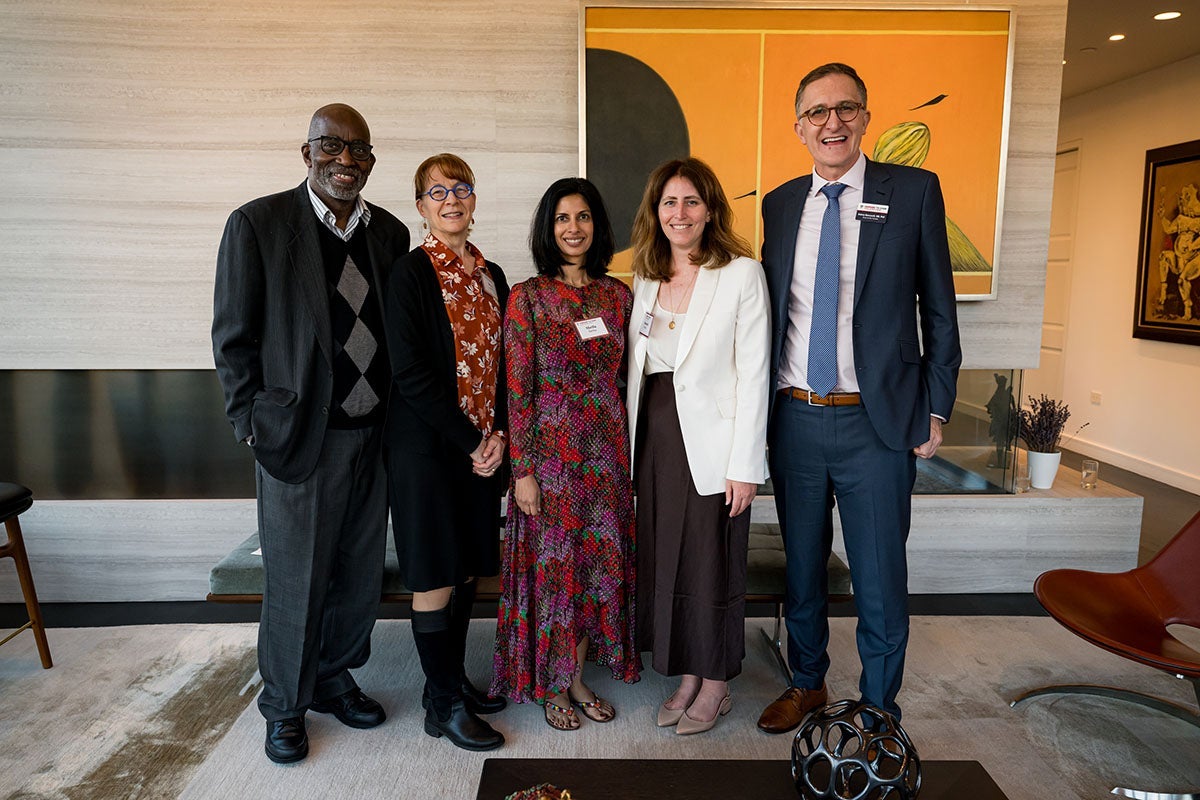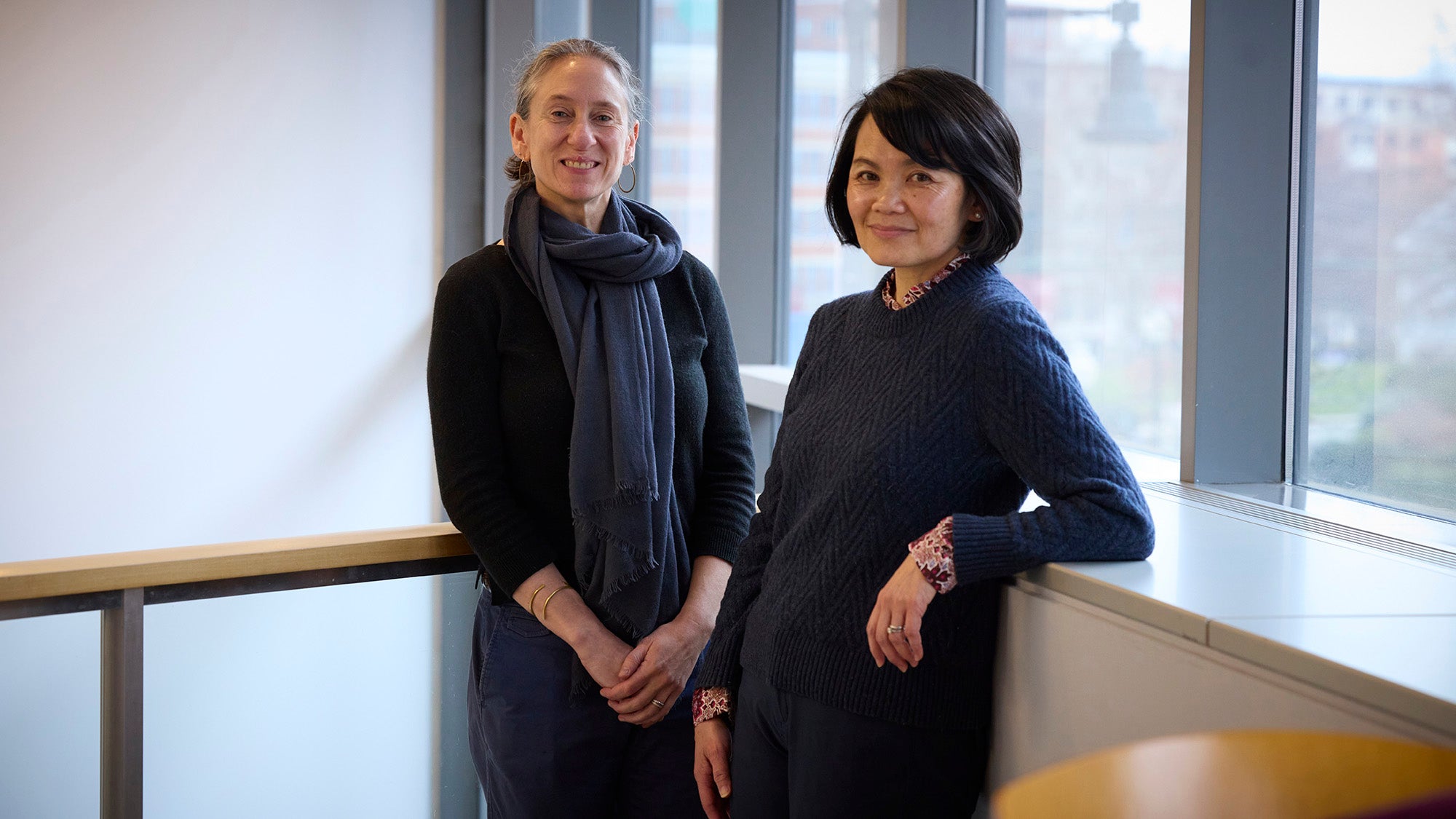Faculty share research on mental health at ‘Public Health is Personal’ event

October 17, 2024 – Earlier this month, faculty members from Harvard T.H. Chan School of Public Health gathered with alumni, friends, and public health allies to highlight how the School is leading groundbreaking research to better understand challenges that drive mental health concerns and explore opportunities to address this growing threat.
The event, held in New York City on World Mental Health Day and hosted by Sheila Sarma SM ’01, was part of an ongoing series, “Public Health is Personal,” created by the Office of Development and Alumni Relations to give faculty a forum for connecting with civic leaders to explain how their work has the power to impact our daily lives.
Andrea Baccarelli, dean of the faculty, opened the event by thanking the attendees for coming and underscoring the important work being done at the School to support mental health.
“World Mental Health Day is an opportunity to think about mental health, to reflect on the impact it has, and to support solutions,” Baccarelli said. “At our School, we do a lot in this area…programs that are rigorous, that are cutting edge, and that make a difference.”
Dean Baccarelli ended his remarks by welcoming the evening’s panelists: Amanda Yarnell, senior director of the Center for Health Communication; David Williams, Florence Sprague Norman and Laura Smart Norman Professor of Public Health; and S. Bryn Austin, professor in the Department of Social and Behavioral Sciences and founding director of the Strategic Training Initiative for the Prevention of Eating Disorders (STRIPED).
During the conversation, the trio highlighted their work to understand factors impacting mental health and identify opportunities for action:
- Yarnell talked about providing evidence-based research to digital creators who post about mental health, some of whom were in the audience.
- Williams shared his research on the damage of discrimination, including studies showing that elevated “everyday discrimination” correlates closely to both mental health struggles, including higher suicide rates, and physical health challenges such as hypertension and cancer.
- Austin highlighted the health risks of eating disorders, which kill an American every 52 minutes and cost the country $65 billion annually, and shared her concern with social media algorithms that can fuel unhealthy body images.
“What I love about Harvard Chan School is that it really takes the ‘public’ in ‘public health’ very seriously,” Yarnell said. “People really care about how what they do affects people like you, people like your kids, people like your grandkids. They’re really thinking about how what they do is going to change people’s lives.”
At a question-and-answer session following the panel, one attendee asked the panelists how they can stay hopeful and committed in the face of challenges.
“My biggest motivation for the work that I do is my students,” said Williams. “I’ve had students and postdoctoral fellows who’ve worked with me and gone on to do remarkable work. They are less patient than I am, and the research that they’re doing…it makes an old man proud.”
Austin agreed, complimenting the brilliance of Harvard Chan students and echoing their commitment to building a better world. “I’ve always felt that whatever time I have on this earth, it has to be devoted to making a difference,” she said.
photo: JJ Ignotz Photography


